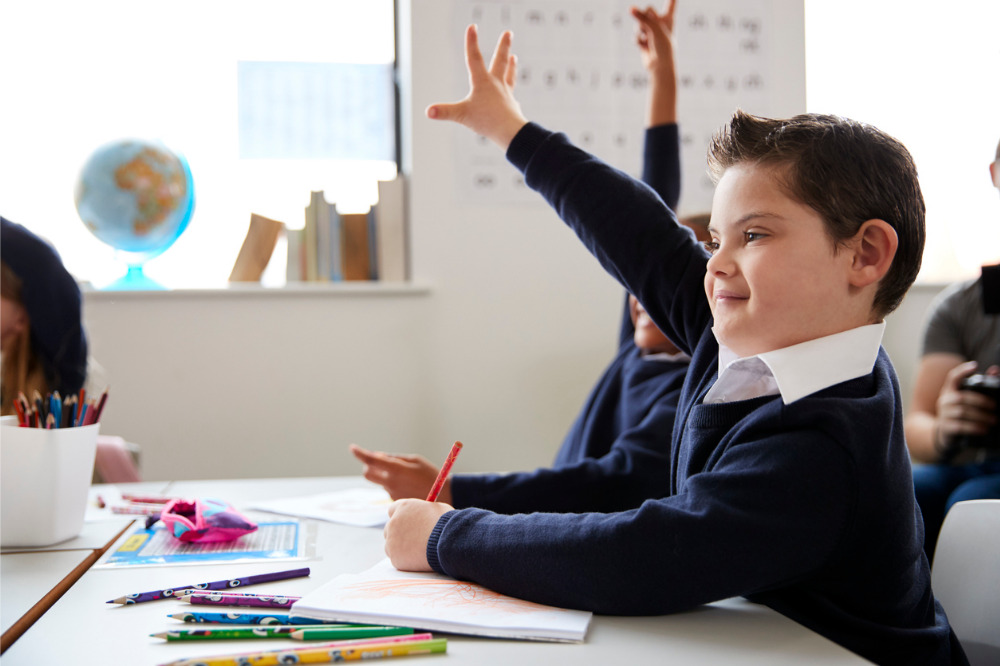
In February, the NSW Department of Education released the long-awaited Inclusive Education Policy, which is officially due to start in Term 3, 2022.
The Policy was announced amid reports that most Australian schools are struggling to provide adequate disability support for young people. According to a recent national survey, 83% of all principals say they do not have sufficient resources to appropriately meet the needs of students with disability at their school.
The report also found that 89% of principals use funds from other budget areas to cover funding shortfalls for students with disability and that 87% of principals say teachers would benefit most from additional classroom support when teaching students with disability or learning difficulties with 100% of SRS.
Under the NSW Government’s Inclusive Education Policy, inclusive education in NSW is defined as “all students, regardless of disability, ethnicity, socio-economic status, nationality, language, gender, sexual orientation or faith, can access and fully participate in learning, alongside their similar aged peers, supported by reasonable adjustments and teaching strategies tailored to meet their individual needs. Inclusion is embedded in all aspects of school life, and is supported by culture, policies and everyday practices."
However, Family Advocacy - a group which works with families to promote and defend the rights and interests of people with developmental disability - says the Policy is far from inclusive and continues a system of segregation rather than inclusion.
The organisation points out that children with a disability will continue to be separated from their peers rather than enrolled in schools designed for specific purposes.
Cecile Sullivan Elder, Family Advocacy’s Executive Officer – who in October 2020 was part of an expert witness panel on the Disability Royal Commission’s public hearing on "Barriers to accessing a safe, quality and inclusive school education and life course impacts" – says both international and Australian research shows that children with disability do better on all measures in inclusive settings, rather than disability-specific settings.
“A study of literature has also found that inclusive education leads to better social development for children with and without disability,” Elder told The Educator.
“The study also found that children with disability who are included into mainstream educational settings demonstrate better academic and vocational outcomes when compared to children who are educated in segregated settings.”
Elder said a 2017 report entitled ‘A Summary of the Evidence on Inclusive Education’ indicated that benefits of inclusion for students with disabilities extend beyond academic results.
“The benefits extend to social connection benefits, increased post-secondary education placement and improved employment [11.2% more likely to have competitive employment] and independence outcomes [10% more likely to live independently].”
In addition, says Elder, a rigorous peer reviewed study of literature in 2018 comparing inclusion and segregation “could not find a single empirical study that drew conclusions in favour of segregation.”
Julie Charlton, member of the NSW Disability Youth Council, shares Elders concerns about the government’s new policy.
“Time and time again the NSW Department of Education has segregated us from our peers and our ability to thrive in life,” Charlton said.
“As they continue to do so by not removing Schools for Special Purposes and having exclusionary policies like this one, we continue to feel excluded from society.”
Policy ‘unauthentic in its intention’
Elder said that whilst it is positive that the Department of Education is putting a focus on the education of students with disability, the policy is “unauthentic in its intention to bring about the actual inclusion of all students with disability.”
“The direct impact of this is that young children entering school for the first time will continue to be segregated away from their peers,” she said.
“Rather than having the effect of moving more children with disability into regular classes, this inclusive education policy will promote and expand the numbers of students in support units and special schools.”
Elder said the life impact of this segregated education leads to isolation from the general school population and a higher chance of continued segregation into adulthood such as attendance at Australian Disability Enterprises and Day Services.
“All of course perpetuating the extremely low percentages of people with disability in the labour market as we have heard at the Disability Royal Commission hearing this week.”
The NSW Department of Education has been contacted for comment.


